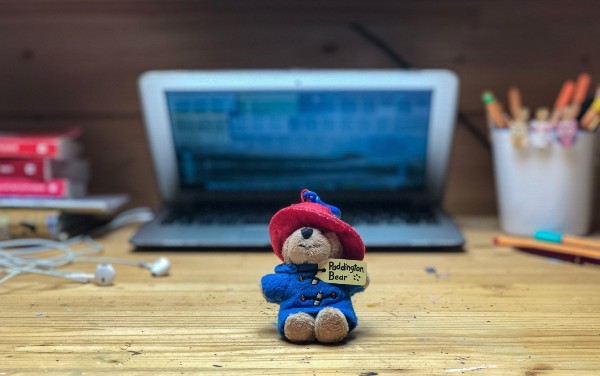*Sophie
A family was allocated to me shortly before lockdown for a child protection assessment. I had only completed one physical visit to this family, so I had the challenge of building new relationships with three parents and two children. E is a 12-year-old female and C is a 5-year-old male; they live with their mother and have different fathers.
I knew doing this virtually meant it would be difficult to ensure I spoke to the children alone. I also knew I would need to be creative if I was going to build relationships with the children strong enough for them to feel they could talk to me freely and honestly.
Both E and her mother have dyslexia, so I used the voice message function when messaging, rather than sending texts. I also used video calls when speaking with the children so that I could observe their body language and they could see mine.
Research [1] suggests that prescriptive plans for visits can be a barrier to relationship building and children should be enabled to take the lead on how much contact they want. I decided to message or phone the family every other day to check if anyone wanted to talk.
E wants to be a beauty therapist, so I have been on a video call to her whilst she practices make-up styles or curls her hair.
We have been able to talk about all aspects of her life during these sessions. Even though I’m not physically present, I’m still participating in an activity with her and she appears more relaxed during these video calls.
C has practised dance routines for me that he will show me during virtual calls. He will sometimes dress up as a superhero and I can ask the superhero questions about what he thinks C is feeling. The children are often in their bedrooms when speaking to me, but at times I have asked them to show me the garden or talk to me when they are walking the dog. It is during these moments I feel most confident that I am genuinely talking to them alone.
When E was telling me about her dyslexia, she explained how she often sits at the back of the class as she doesn’t understand things. I thought about how this must feel and so we talked about how she had built a hammock in the garden all by herself to highlight her strengths and achievements. When C slept in his bed for the first time ever, he left me a WhatsApp message as I was the first person he wanted to tell.
These are unusual times, and everyone is adapting to new ways of life and working. However, if the basic principles of good practice are applied, research is used to underpin methods of working and family members are listened to, Covid-19 does not have to be a barrier to social work with children and families. Indeed, it can be an opportunity to find new and exciting ways of engaging with families.

Pic credit: cottonbro from Pexels
*Janet
T is approaching his 18th birthday and has high-risk behaviours, including a lack of engagement with services that support him. He has had periods of time in secure accommodation. He currently lives in a one-to-one specialist placement with no other young people and he has no contact with any extended family.
T can be challenging to work with, intimidating even, at times. But the flipside of this is that T is also incredibly funny, loyal and fun to spend time with – you just never know what you are going to be presented with!
Working with T during lockdown has made me rethink the way we should work with young people in the future.
Due to his complex needs I have spoken to T every week via the Messenger app during lockdown and he has relished it. This could have been because we were having more contact; or it could have been that he is completely bored and speaking to anyone is better than no one!
But for T I think it is more than that.
Speaking “virtually” is this generation’s way of communicating. As adults we need to consider whether this is how they feel more comfortable.
I have noticed that T, and a number of other young people with attachment disorder, seem to have preferred this method of communication. I wonder if they feel less threatened by it – they no longer have to physically sit in front of someone having to give eye contact.
T hates meetings but we had a very successful virtual meeting with him and his personal adviser (PA) about his post-18 accommodation recently. T engaged really well. I think having everyone’s face on the screen meant he no longer felt everyone was looking to him for answers or responses.
I’ve also reflected on any changes in my own behaviour that might be having an impact. I think everyone who has worked long term with T has, at some point, felt threatened by him – and this does have an effect on how we interact with young people. Without that subconscious fear I have found my virtual chats with T have been much more honest. I’ve been able to challenge him more and help him think more widely. He had an episode two weeks ago where he phoned me, clearly struggling, and was shouting over the phone. I found it a lot easier to talk to him calmly on the phone compared to if he had been erupting in front of me!
Us both being in our homes during our video calls has also meant I have been able to safely share a little bit more of myself. I’ve shown him the tomato and courgette plants I have been growing and then sent him some seeds.
Another element I’ve considered is that because I’m not travelling so much I’ve been able to spend more time catching up with my young people. I’m interested to see if this leads to more placement stability and what that might mean for practice going forward.
Are you interested in working as part of an outstanding authority and looking for innovative ways of working post Covid-19? Register your interest with a CV; find out more about Hampshire; or search for jobs
[1] Oliver. C (2010) Children’s views and experiences of their contact with social workers: A focused review of the evidence. Children’s Workforce Development Council




 Facebook
Facebook X
X LinkedIn
LinkedIn Instagram
Instagram